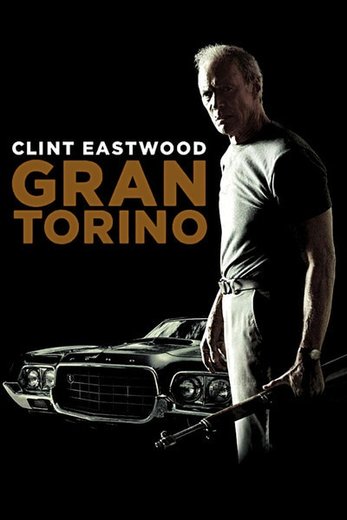 Image found at www.rogerebert.com/reviews/gran-torino-2008 Image found at www.rogerebert.com/reviews/gran-torino-2008 Good Friday is coming in a few weeks and with it, some theology I simply cannot stand anymore. It's found in many worship songs like Jesus Paid it All, In Christ Alone, One Thing Remains (Your Love Never Fails) and more. It's called substitutionary atonement or penal substitution in theological language. And it's heard so often, you might even think it's the only show in town when it comes to explanations and understandings of the cross. Richard Rohr, writes in Eager to Love: The Alternative Way of Francis of Assisi, “For the sake of simplicity and brevity here, let me say that the common Christian reading of the Bible is that Jesus 'died for our sins'— either to pay a debt to the devil (common in the first millennium) or to pay a debt to God the Father (proposed by Anselm of Canterbury [1033–1109] and has often been called 'the most unfortunately successful piece of theology ever written')..." I could not agree more. No matter how sweet sounding the music, the image of God portrayed by such lyrics is a petty, powerless and/or blood-thirsty tyrant requiring some kind of payment or transaction before those He's created can be forgiven, loved, and rescued from eternal damnation. There are lots of problems with this theory. One major problem is that if we read the Hebrew Scriptures, like the Psalms and Prophets, we discover a long-suffering God who was forgiving and willing to forgive long before the cross occurred. Rather than a belief that Jesus' death on the cross was necessary to change God's mind about us, we can see how Jesus' life and death invited us to change our minds about God. Jesus was simply following in his Father's footsteps of relentless, sacrificial love. I have a problem with lyrics and theology that proclaim the opposite. Given this theology is taught through song and sermon in many churches (I taught it years ago as a youth pastor!), we're not apt to actually stop and think through it ourselves. It took me a while to admit that something seemed "off." There would be songs that seemed fine up until the "wrath" or "debt paid" lyrics showed up affecting the whole song. As I questioned this dominant cultural voice in American Christianity, I realized there were others experiencing the same internal dissonance. I also discovered there were other views about the crucifixion (always have been) besides substitutionary atonement. And that one no longer represents my viewpoint... The movie, Gran Torino, on the other hand does. Spoiler alert, if you haven't seen it and want to, you may want to stop reading, go watch it and come back later. And be aware, there's violence (although let's be honest, there has to be if drawing any kind of connection between it and Good Friday). Back to the movie, I did not see it coming, the ending of Gran Torino. In fact, I imagine I got a taste of being stunned the way the disciples might have been stunned on that Good Friday long ago...they simply never saw it coming. Yet the Gospels tell us Jesus did (and so did Clint Eastwood). If you saw the movie but cannot remember the ending, go check out a Youtube clip of the end. The final scene is so rich in symbolism, I'm not even going to get into all of it (plus it would take away from your own disturbances and observations). All I know is that Gran Torino gave a pretty good glimpse of my view of Jesus' death on the cross in less than 5 minutes. A quick overview of the movie...gruff Walt Kowalski (played by Clint Eastwood) is a recently widowed Korean vet. He's fairly estranged from his own family when he gets drawn into the drama of his Hmong neighbors. Young Thao tries to steal Kowalski's Gran Torino after being pressured by his cousin to join the neighborhood gang. You know that Eastwood is not going to let that happen! This event leads to Kowalski developing a relationship with the family and getting an inside look at the cycle of violence and poverty experienced by the Asian community in his neighborhood. He sees how his well-intentioned advice to Thao to get a decent job and stay away from the gangs simply doesn't work, no matter how hard Thao tries, he and his sister cannot escape the brutality and injustice. It requires something more to liberate Thao and his sister. And that's where we start seeing Kowalski's single-minded intensity and there's no mistaking he is planning something. What he's planning, we have no idea. Although we know something is about to take place when one night he shows up at the house where the gang members hang out and begins to yell in order to provoke them. One by one they come out with guns drawn. We're expecting "an eye for an eye" moment thinking Eastwood will whip out a gun and give them the justice they deserve by picking them off all in a row. What we're not expecting from the foul-mouthed Kowalski is "Greater love hath no man than this, that a man lay down his life for his friends." (John 15:13) And yet he does. And on purpose. His stunning and creative act of solidarity and sacrifice releases Thao and his sister from the cycle of violence. They were "saved" by his blood. In a perfect world, the prison system would reform the perpetrators and they'd be "saved by his blood," too. It's not a perfect world and Walt doesn't rise again in three days, so there's only so far the comparisons can go but I think it's worth noting the image of Christ found in Walt's sacrifice. First, let's admit that Walt himself could be a stumbling block for some. In which case, I ask us to ponder what one who "walks in the way that leads to Life" really looks like. Is it being a nice, moral citizen who tries to avoid or point out sin (but can have a habit of ignoring the cycles of violence and systemic injustice in his own "neighborhood")? Or might one resemble Walt, a crass, politically incorrect "sinner" who not only notices the violence and injustice, but steps into a Christ-like path which will set his neighborhood free? Setting his face like flint, he walks right onto that sidewalk for an act of love which will rescue his neighbors from being held captive by a cycle of violence they are powerless against. Sound familiar? Jesus knew his message would provoke the authorities. He knew that such ire would inevitably turn him into a scapegoat (a person or people group on whom we unfairly pour out our wrath, making them "pay"). He knew it is human nature to look for a scapegoat. So much so, it becomes a religious necessity for nearly every culture (some even beating literal goats to death as the name suggests)! One can see how Jesus' bold message about what to do with friends and enemies does not fit, but in fact destroys both the necessity for and violent cycle of sinful and superstitious scapegoating. Bigger isn't better in Jesus' view (even when it comes to God). Being the stronger bully or in the bully's gang never leads to the kind of life Jesus invites, it only adds fuel to the cycle of vengeance. However, many Christians have no problem with this because the image of God passionately sung about is a fickle, vengeful one (and remember, we become like the God we worship). Plus if we agree that Jesus paid it all, we're safely on the winning side. However, in the cycle of violence, there is no winning side. In a stunning reversal of what we would expect from a winning "savior," Jesus chooses solidarity with the suffering of the scapegoat and dies. Jesus knew the pull of scapegoating loomed large. After his resurrection, knowing some of his disciples had a propensity for zealous anger (once they knew they were safely on the "winning team"), he headed off any plans to go after the ones who had killed him. The Gospel of John tells us Jesus meets his disciples in the room they were hiding in, breathes on them, tells them to receive the Holy Spirit then talks to them about forgiveness (20:21), a topic he talked to them about at the Last Supper and even voiced from the cross. It seems the disciples had a choice (and so do we). Be chained to the cycle of violence or have hearts and minds freed up to carry out the mission Jesus began. What is that mission?--a completely different way of being in the world (which includes the religious one!). It's the subversive, dangerous and life-giving way of loving God and our neighbors (whether they be Hmong, Muslim, Mexican, Irish, disabled, poor, or LGBT+) as we love ourselves (which includes parts of ourselves we like and parts we'd like to treat as scapegoats). It's that kind of love that frees. It's that kind of love that Abraham Lincoln, Martin Luther King, Jr., the young Palestinian girl Malala Yousafzai, and Walt Kowolski knew would cost them something, perhaps even their lives. If someone wants to write a song about that, I'll gladly sing it. |
AuthorKasey is a scarf, ball and club juggling spiritual director just outside of Nashville, TN. Play helps her Type-A, Enneagram 1 personality relax, creating space for poetry and other words to emerge. She also likes playing with theological ideas like perichoresis, and all the ways we're invited into this Triune dance. Archives
January 2024
Categories
All
|
By clicking “Sign up for E-News” I consent to the collection and secure storage of this data as described in the Privacy Policy. The information provided on this form will be used to provide me with updates and marketing. I understand that I may modify or delete my data at any time.

 RSS Feed
RSS Feed

